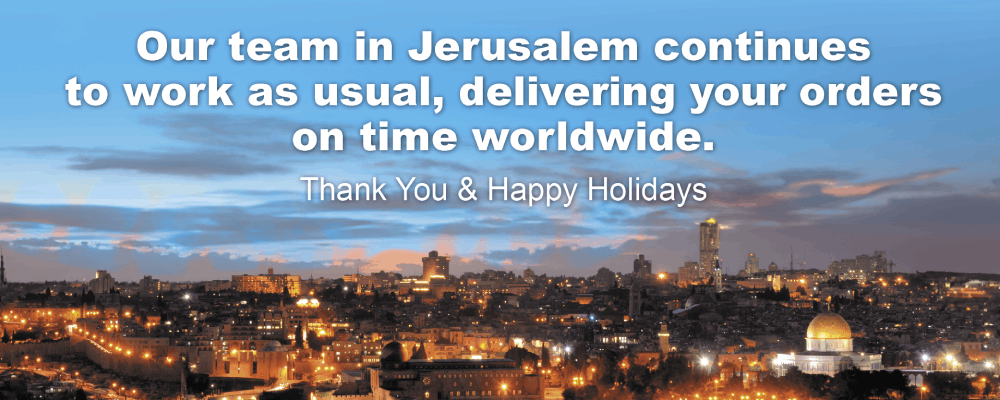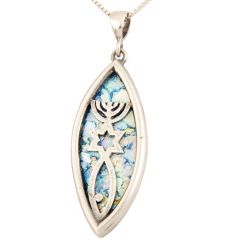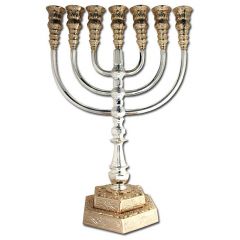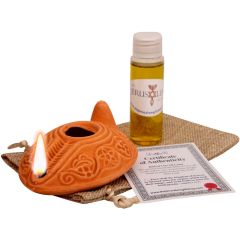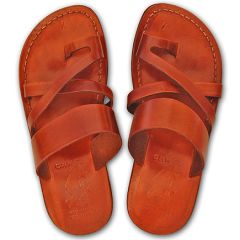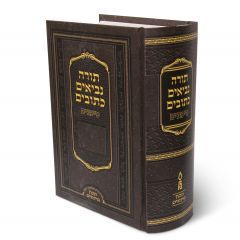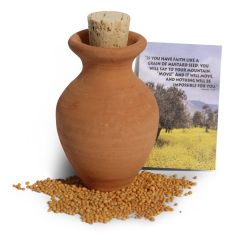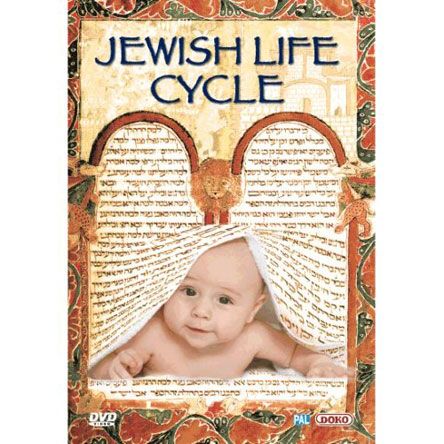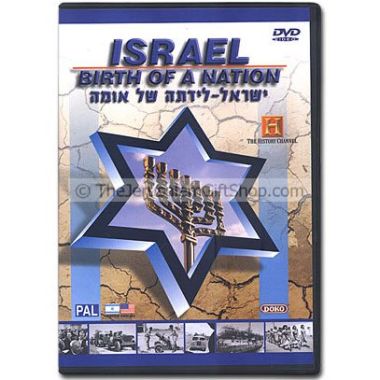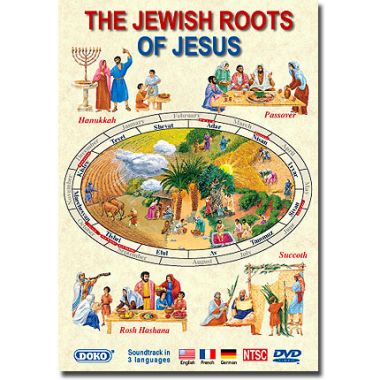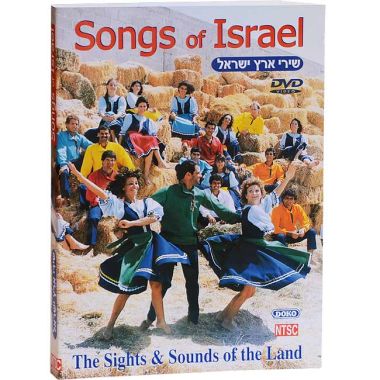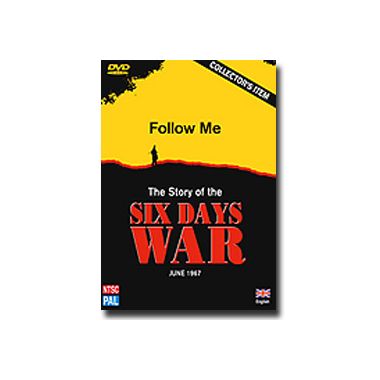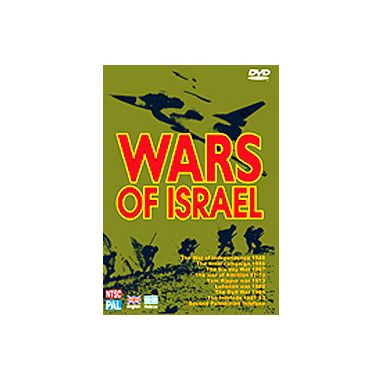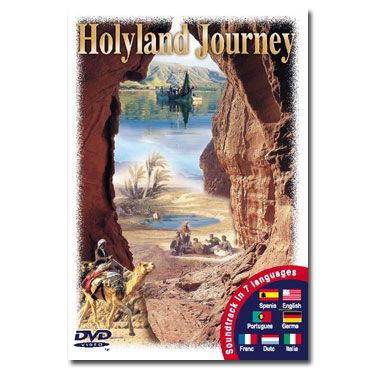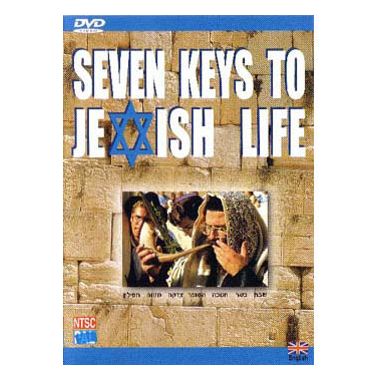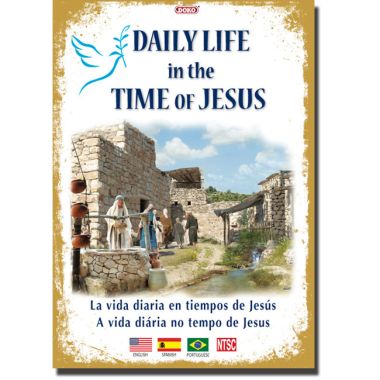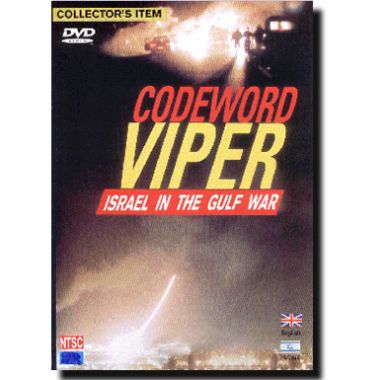We use cookies to improve your experience on our site and to show you relevant advertising.
To find out more, read our updated privacy policy and cookie policy. Read more
Three dramatizations of the most fundamental rites in a Jew's life (birth, coming of age, and death) explore the age-old debates between those Jews who hold fast to the Law of the Torah as an eternal covenant and those who view its dictates as outmoded restrictions and impediments to human progress.
1. In "The Eighth Day", the issue of circumcision is debated by two Jews, one "modern" and secular, the other a religious, Torah-observant traditionalist. Set in the mountains that surround Jerusalem during the time of the Greek occupation of the Holy Land, the assimilated Jew must decide whether or not to circumcise his son after his wife secretly calls on "Joseph the Physician", whom she did not know was a rebellious Maccabee. Joseph, formerly a lecturer at the Greek Academy and well-versed in "enlightened", secular Greek theology and philosophy, nevertheless tries to convince the new father that the Jews are a people set apart from other nations, and that by circumcision his son will enter into a unique covenant with God.
 All the while pursued by Greek soldiers who are hunting for "Joseph the Physician", the two very different protagonists engage in a captivating volley of arguments for and against traditionalism, modernity, secularism, assimilation, the Oral Law, rabbinic authority, and not least of all, God Himself.
All the while pursued by Greek soldiers who are hunting for "Joseph the Physician", the two very different protagonists engage in a captivating volley of arguments for and against traditionalism, modernity, secularism, assimilation, the Oral Law, rabbinic authority, and not least of all, God Himself.
For more about the Maccabees and their involvement in the miracle of Chanuka, see our video "Seven Keys to Jewish Life".
2. "The Journey" is the true story of Joseph Levinson, a not very religious Jewish American who visited the Soviet Union in 1941 with the U.S. Army Corps of Engineers. In that year Nazi armies had launched a surprise attack on Soviet territory, a disaster which provoked the American government to send their best engineers to the U.S.S.R. to help develop a defense strategy that would put the Nazis out of business. At the same time, however, Soviet propaganda and "education" had been brainwashing its citizens for two decades with slogans like "religion is the opium of the masses" in an attempt to snuff out faith.
In this environment, an aunt who must send her nephew to school in a distant city begs Mr. Levinson from the trainstation platform to tell him something, anything, about what it means to a Jewish boy to turn 13. Nikolai's aunt knows nothing of Bar Mitzvahs herself. . . but unfortunately Mr. Levinson never learned much either. As the two jump the train and evade Soviet authorities so that Levinson can keep his promise, Nikolai's questions about Jewish ritual, peoplehood, and the existence of God reveal the sad consequences of education in a communist society that denies Him, while Mr. Levinson's answers provide surprising material for comparison with the spiritual well-being of Jews and their religion in free societies. Arguments for and against soviet anti-religion, atheism, and the supremacy of science over faith not only emerge from this specific historical context... they shed light on the controversies of our own.
What became of these two fugitive theologians after the world decided to lay down its weapons of war? Be sure to pay close attention... their fates may shock you.
3. "The Corridor", set in the famous Hadassah Hospital of Jerusalem in modern times, tells the story of a young Jewish American girl who survives a car accident... but only after being declared dead for six minutes. When she awakes, her nurses are confused by her ability to tell them what was going on in different rooms for the six minutes she lay without vital signs. The girl insists that she saw a corridor, a light, felt pulled away from her body but wanted to go back.
A skeptical doctor, an ambitious psychiatrist, and a religious Jewish visitor hear her story and respond with three very different perspectives (all prevalent in modern Israeli society today), on life and death, body and soul, and the possibilities of an afterlife. Even without consensus between them, all of the characters but one are convinced that the girl's and so many others' near-death experiences are proof that death in this world is anything but an end to life.
These three stories, saturated with the questions and conflicts that have surrounded Jewish tradition and practice since Sinai, provide the viewer with insights into Judaism and the Jewish experience that are certain to enlighten and inspire even the most well-read audience.
Running Time: 90 minutes
Shipped direct from Jerusalem.
| EAN | 7290109632551 |
|---|
Write Your Own Review
